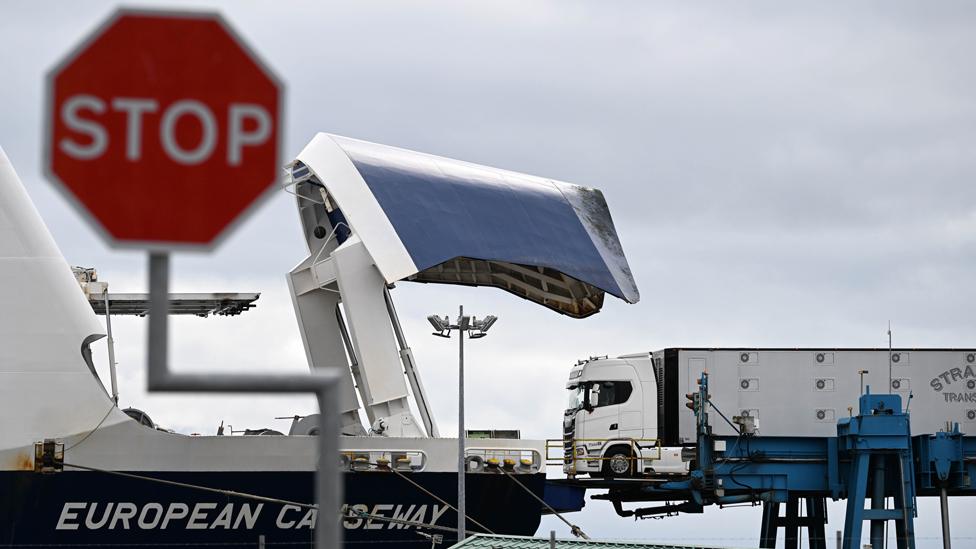Brexit: Peter Robinson returns as DUP faces crossroads
- Published
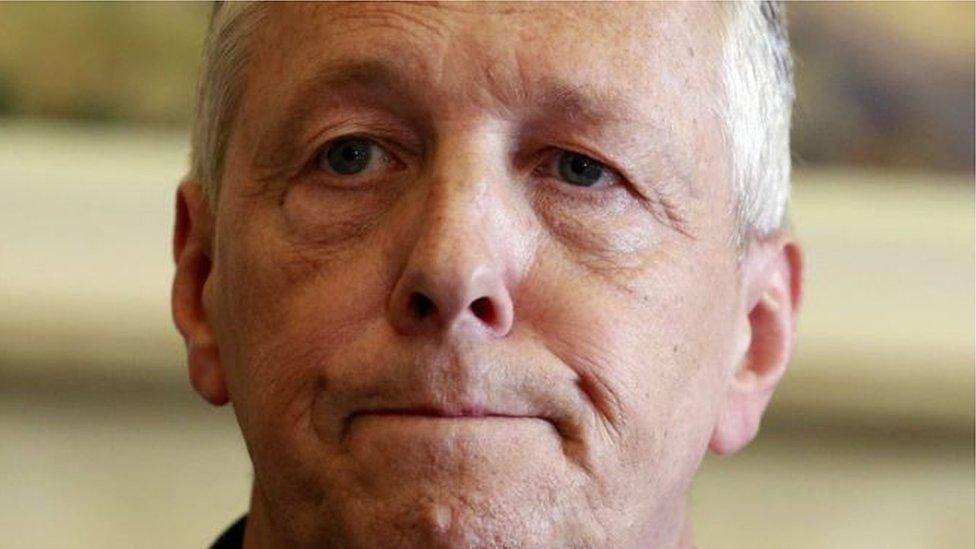
Peter Robinson is back in the Democratic Unionist Party fold
It is a tried-and-trusted DUP strategy in the hands of a tried-and-trusted DUP strategist.
Peter Robinson is back in the fold at a time when the party is facing a critical crossroads.
His mission, along with Baroness Arlene Foster and fellow panel members, is to canvass opinion on the revised post-Brexit arrangements in the Windsor Framework - a process which will help shape the DUP's next move.
Don't be surprised to read the following when the panel's work is done:
"The DUP, in keeping with the outcome of its consultation process, wants to build on the areas of progress made... whilst recognising that other aspects of the proposals require further work.
"The party will continue with the work in progress to ensure up front delivery by government."
Sound familiar?
That statement was released 17 years ago when the DUP was at another critical crossroads.
That was the moment when the party signed the St Andrews Agreement to join Sinn Féin and other parties in a power-sharing executive.

Baroness Foster also returns to join the DUP panel
Now, like then, the party is planning to consult widely.
Now, like then, the DUP has secured some wins in the deal which it hopes to bank.
But now, like then, there are some issues which will require further work.
And now, like then, Peter Robinson is at the heart of that process.
Back then, the DUP signed up with a pledge to continue with the "work in progress".
Could we see a similar approach to the Windsor Framework?
Though, unlike in 2006, the DUP has set seven tests to measure if the new framework meets the party's demands.
Tests which some in the DUP say have clearly not been met.
That complicates the picture and leaves the party leadership more exposed to its critics both internally and externally.
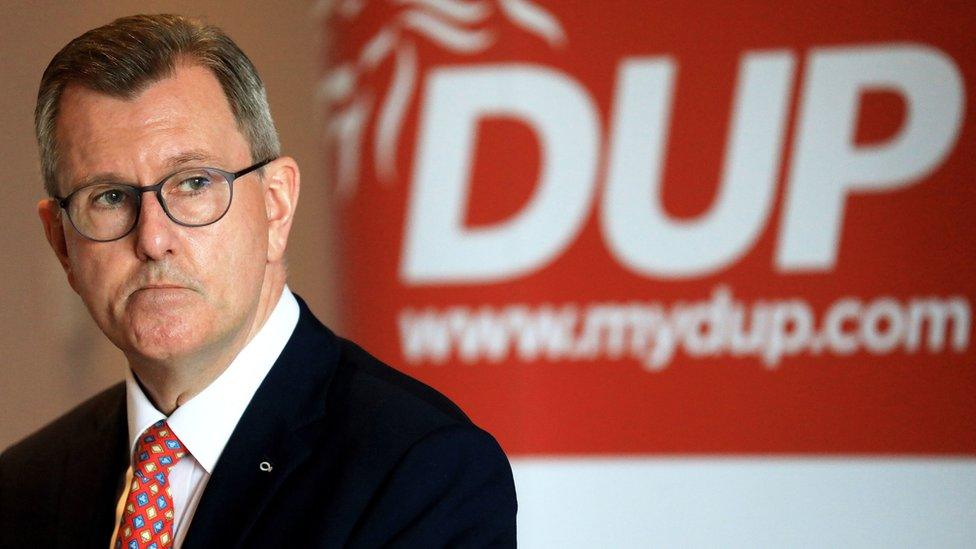
Sir Jeffrey Donaldson has set up an eight-member panel to gauge opinions on the Windsor Framework
But could the new DUP strategy be designed to separate the seven tests from any move to return to Stormont - to have two separate processes running side by side?
That could allow the party to reject the Windsor Framework because it failed to pass all seven tests.
Or the DUP could reserve judgement on the deal, abstaining in a Commons vote until they road test the Stormont brake and other new arrangements, while at the same time returning to the power-sharing executive after listening to the "stakeholders" consulted by the panel.
The party could argue the only way to properly test the new arrangements is from within the Stormont Executive.
Plus the new framework makes it clear the Stormont brake and other controls can only be applied when the assembly and executive are fully operational.
But returning to Stormont carries some risk for the DUP as it removes the party's leverage.
Though the party's return will likely be conditional and it will reserve the right to walk away again.
The timing is also critical with Sir Jeffrey Donaldson hoping to make a call by the end of this month.
Around the same time, the EU UK Joint Committee is expected to meet to rubber stamp some of the new arrangements.
And the 25th anniversary of the Good Friday Agreement will be fast approaching with the possibility of a presidential visit.
There is lots for the DUP to consider between now and then, but its strategy and key strategists are now falling into place.
Related topics
- Published15 July 2021
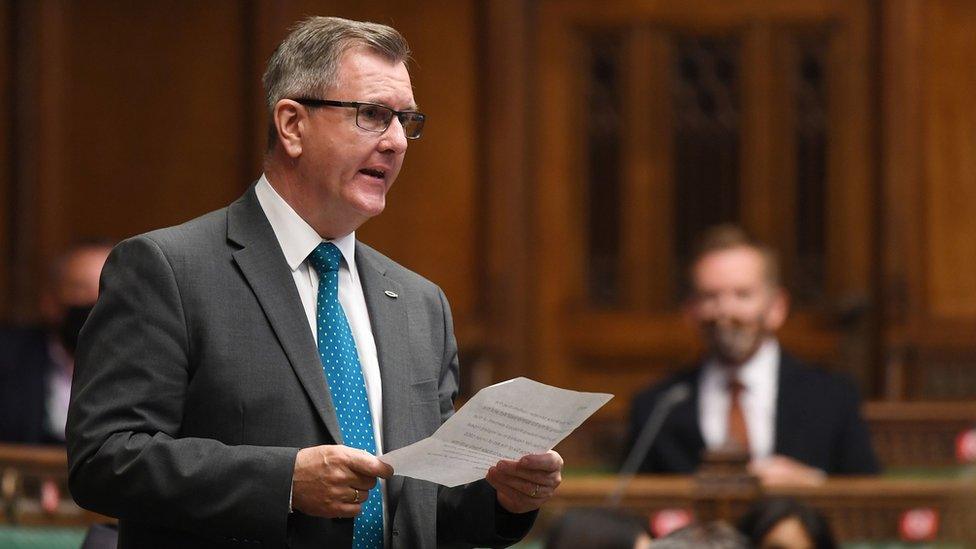
- Published6 March 2023

- Published19 November 2015
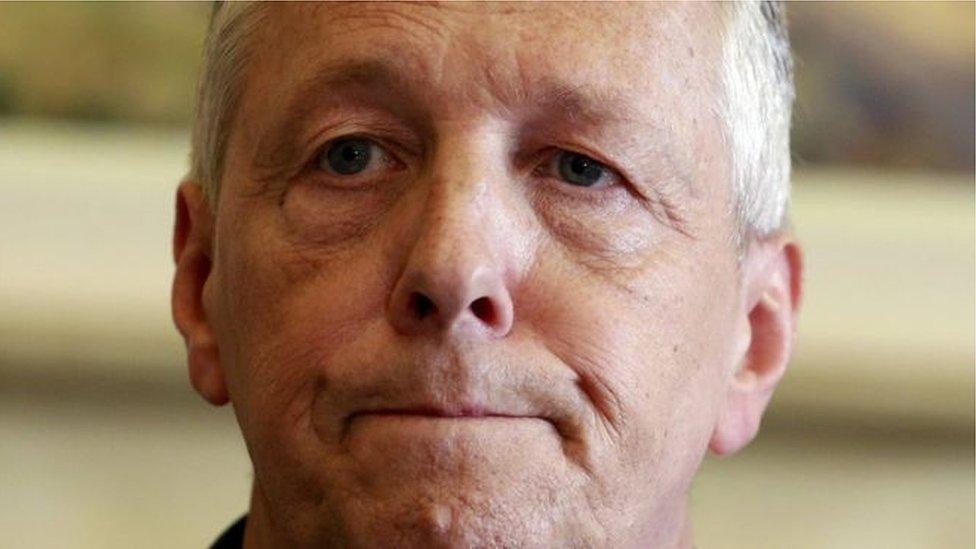
- Published28 February 2023
- Published28 February 2023

- Published28 February 2023
